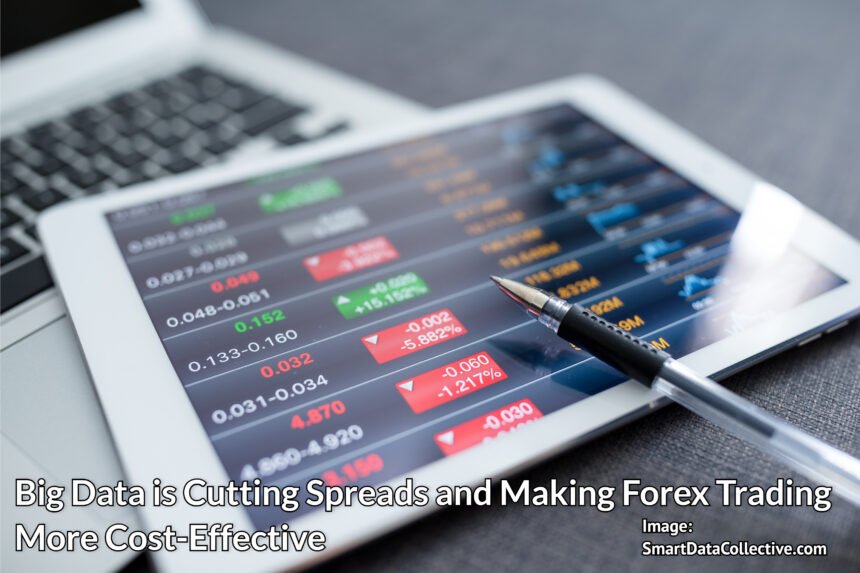I have met at least three people that want to make a living as forex traders. There are probably tens of thousands of other people that share their dream. Unfortunately, the odds of succeeding in forex trading aren’t very high. However, this is slowly changing as more people gain access to revolutionary technology that allows them to compete against big traders on an even playing field.
In recent years, big data has started to change the rules of forex speculation. It may be easier for new traders to make a living in the near future.
CNBC’s Bob Pisani states that the financial industry is one of the last to make big data readily available to the average individual.
“Wall Street is among the last industries to embrace Big Data for the average individual. Sports business, for example, has made good use of Big Data for a couple years now (just look at the mass of statistics in an average NFL game). Why has Wall Street been so slow to embrace Big Data for the masses? I don’t know, but my guess is that it is a threat to the business model of a lot of firms.”
The forex market may have been hesitant to roll out new big data solutions for the same reasons. While the currency market is much more decentralized than Wall Street, there are still some powerful players that don’t want to compete with smaller traders. However, big data tools are finally reaching the desks of everyday traders, which will make it easier for them to make a sustainable living in one of the world’s most competitive professions.
How Big Data Is Changing the Forex Trading Profession
Forex speculation became popular in the early 1970s. Many people believed it would be an easy way to get rich.
Unfortunately, they discovered succeeding in this field was much more difficult. The problem is that changes in currency prices are very small, so they can be difficult to spot. The traders have leveraged a number of cutting edge tools, such as:
- The Forex Calendar – a news syndicator that shares forex related news in real-time.
- Autochartist – a pattern recognition software.
- Trading Terminal – an application that allows traders to track multiple assets at the same time. Since scalping is difficult, many low spread brokers are using this tool to streamline the process.
Most of these tools rely on big data. They can extract data from the cloud and incorporate it into algorithms that can help predict future price movements.
According to many experts, big data is going to make technical analysis much easier in the near future. Smaller investors can leverage more sophisticated algorithms and a larger amount of data, so they won’t be at the same disadvantage against larger traders.
Here are some ways that big data is changing forex:
- James Cochrane reports that big data is reducing spreads. A few years ago, the average rate was $100 for every $1 million in spread. Today, the spread is $20 to $25.
- Traders have access to more markets than ever before. Many emerging currencies are being introduced on the global FX market. Big data has played an important role.
- Trends are becoming much easier to spot.
- Brokers will have an easier time meeting regulatory expectations. Xentaurs states that more brokers will invest in their infrastructure, since they will have an easier time complying. This means it will be easier for traders to access the markets as well.
However, there are some pitfalls with using big data. The biggest concern is the reliability of the algorithms traders are using. If the models are built on bad assumptions, then the outputs will be unreliable. Extracting data can also be an issue. Fortunately, Hadoop and other big data extraction tools make it easier to access large volumes of data in real-time.
Big Data is Changing Forex – Mostly for the Better
Big data is shaping the forex market in many ways. Everyday traders will have an easier time accessing the data they need to make informed decisions. In the near future, it should help reduce the competition between major traders and amateurs.

